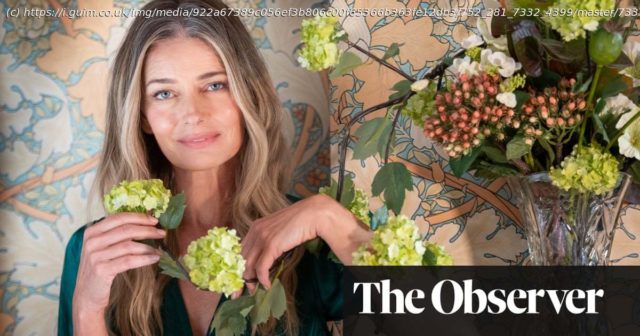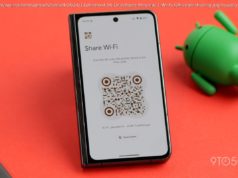Array
Moving through a room as a teenage supermodel when she first came to New York, mouths would drop, drinks would appear, eyes would spring out of sockets as if from a cartoon cat. In one chatshow appearance I watched on YouTube, from 1994, the radio personality Howard Stern spontaneously undressed in front of her. Trousers, shirt, everything.
But at 57, the experience is quite different for Paulina Porizkova. One night earlier this year, she was at a party in Manhattan. Pushing her way through the crowd, she felt out of place, and invisible, and old. Then a young woman sitting at the bar grabbed her arm. “Aren’t you…?” the woman yelled over the music. “Yes,” said Porizkova quickly.
It was not unusual for her to be recognised. She’d been famous since she was four years old, first as a political pawn, when her parents left her behind in their native Czechoslovakia to escape the Soviets, but weren’t allowed to return. They staged a hunger strike in front of the Czech embassy in Stockholm, their new home, to get her back, which was all over the news in Sweden – for five years, the Swedish press camped outside Porizkova’s grandmother’s house in Czechoslovakia, where she lived until she was nine and was finally reunited with her parents. Soon after that, at 15, she was whisked to Paris to become a supermodel. At the height of her fame she signed the highest-paid modelling contract in the world. And then at 19 she became a rock star’s wife when she met Ric Ocasek of the Cars, who was more than 20 years her senior.
“No,” said the woman at the party. “No! You’re the lady who cries on Instagram.”
On Zoom from her rented New York apartment, Porizkova greets me in a dressing gown and wet hair, and over the course of the interview she cries three times. Delicately but in a matter-of-fact way, as if sneezing – they’re tears of grief, but also a new kind of joy. When her husband, Ocasek, died in 2019 after 30 years together, her life exploded in a series of grim fireworks. There was the shock of finding his body and having to tell their two sons, the grief at losing him, and then a final shock, which she felt as a betrayal.
Shortly before his death, when the two were amicably separating, he and his lawyers had secretly cut her out of his will, citing “abandonment”. It floored her – she believed they were still “best friends” who had gradually grown apart, but had continued living together, eating dinner together. But the will left her practically penniless – all her income (including her $6m Estée Lauder contract) had been going into the family account. When the pandemic struck, she felt suddenly very, very alone.
“One day when I was hideously crying, sobbing in bed, I taped it. It was performative to a certain extent, I suppose, but I’d been crying so much, it was the 100th time that week. So I wanted to see what it looked like. And then, in either a really brave or really fucking stupid move, I posted it online.” And so began her fourth fame, as an influencer of sorts, one that talks about grief, anxiety and ageing, often nude or in a bikini, and still, yes, sometimes in tears.
“It really started with the death of my husband. That’s what seemed to humanise me.” Fame, she writes in her new book, No Filter, is like a bubble – the outer surface is reflective, so when people look at you they only see themselves, and it acts as a barrier, preventing connection. Throughout her life, she says, “I have always been candid, I’ve always been unfiltered. If you ask me a question, I’m going to answer it. I’m trying to have a conversation.” The difference now that she was sobbing on Instagram was that the bubble had burst. “Now people listened. For the first time in my life I was being heard, so I could use this voice to say things, to talk about things, that were important to me, such as the invisibility of ageing, and how fucked up that is.” She smiles quietly. “Being heard is so much better than being seen. It makes you real.”
That young woman in that dark bar, she says, was giving her a huge compliment. “Until now, there’s been this diminishment of who I am as a person, because I was always just a flat image. And had she stopped there I might have taken offence, but she went on to say, ‘Thank you for being vulnerable.
Home
United States
USA — IT ‘Being heard is better than being seen’: supermodel Paulina Porizkova on living...






